In Spain This Self-Taught Designer Built A Hidden Apartment Under A Bridge
Tags: opinion
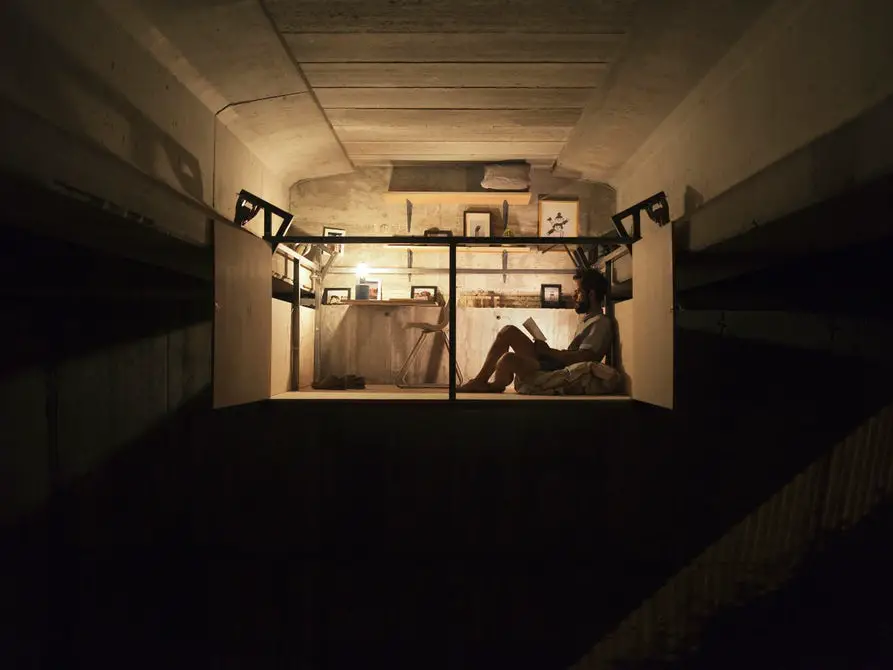
By Mandy Froelich / Truth Theory
Sometimes, the abundance of rules and regulations in society causes one to feel as if they are suffocating. It is because of this that humans need to embrace their creative sides and break free from constrictions — at the very minimum, even just now and again. An individual who has done just this in a very unique way is self-taught designer Fernando Abellanas.
Underneath an anonymous bridge in Valencia, Spain, Abellanas built a novel shelter that includes shelving, seating, and even sleeping space. The designer was inspired to create the abode after recollecting upon experiences in childhood that seemed “magical.” He remembered building forts and hiding underneath the kitchen table cloth and wanted to recreate that sense of playfulness and freedom in a location thousands pass by every day but give little attention to. Because of its purpose, the shelter is more of an art installation than a long-term abode.
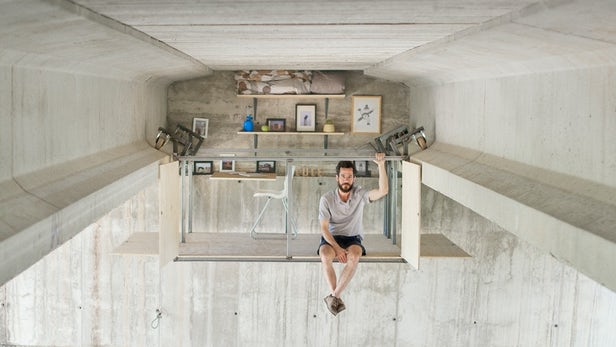
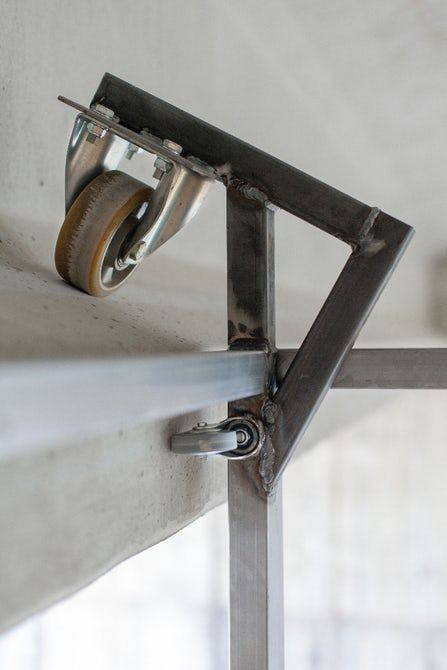
The shelter makes use of the existing beams under the bridge as rails(Credit: Jose Manuel Pedrajas)
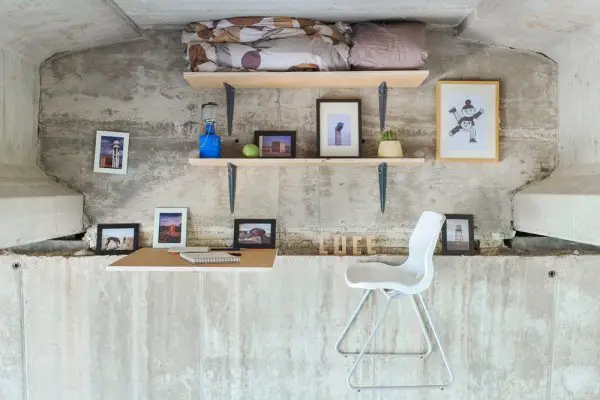
A bench, seat, and some shelving are installed under the bridge(Credit: Jose Manuel Pedrajas)
The project is an example of parasitic architecture, as it makes use of existing structures such as the bridge’s beams and rails. New Atlas reports, “The idea is, a visitor walks up the banked area and enters the plywood-lined metal shelter, then uses an available hand crank to move it along the bridge’s underside to where a bench, seat, and some shelving are waiting.” Though no amenities are afforded, it is possible to construct a bed on the floor with available bedding and sleep through the night.
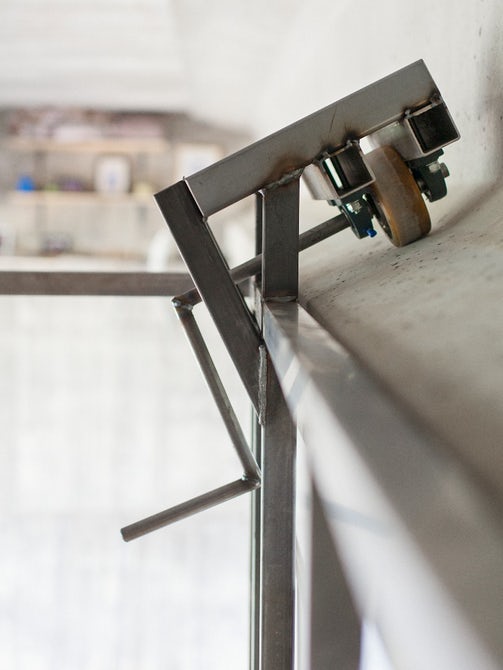
Abellanas conceived the project to recapture the magic that children experience when hiding under a table cloth, or inside some other secret den (Credit: Jose Manuel Pedrajas)
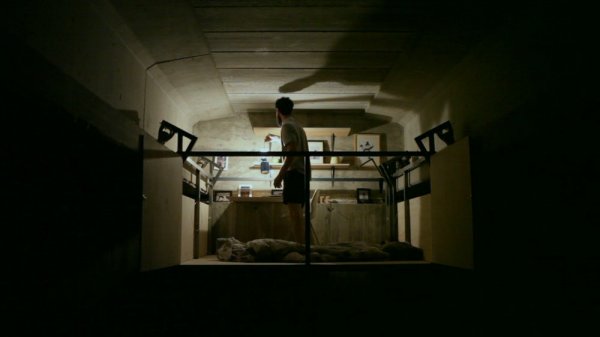
Think of it less as a practical dwelling and more as an art installation(Credit: Jose Manuel Pedrajas)
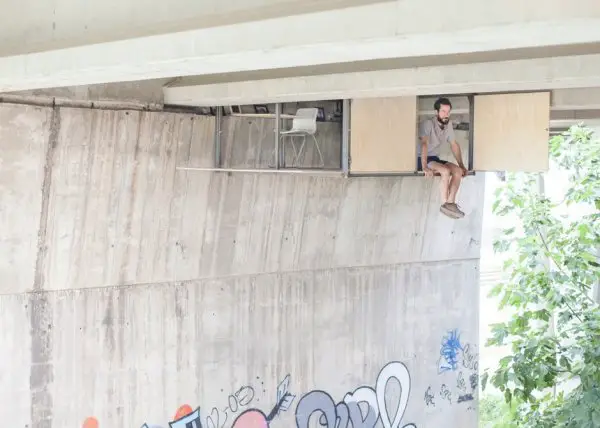
The shelter doesn’t pass over a road during its short journey under the bridge so doesn’t look too dangerous, though that’s still quite a drop at the “studio” end(Credit: Jose Manuel Pedrajas)
“My work as a designer consists [of] trying to implement the concerns relating to design, handicrafts, and architecture which I come across on a daily basis,” said Abellanas. “I observe, research, and develop projects, in a self-taught way, with the only purpose of satisfying my own personal motivation. With the experience, I acquired during years of work I collaborate with artists, interior designers, and architects offering them design and manufacturing solutions. All this I do under the name of Lebrel.”
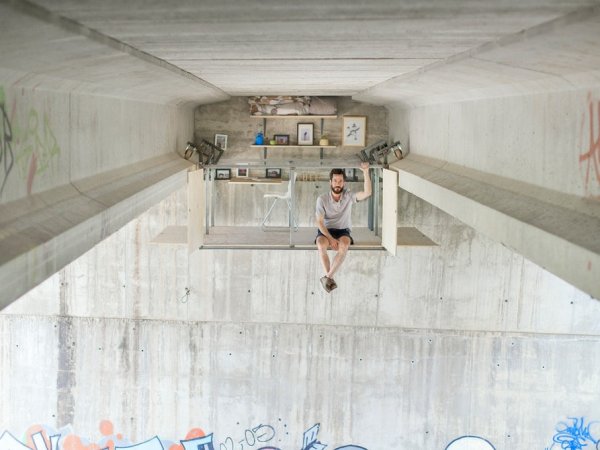
The shelter was created by Spanish self-taught designer Fernando Abellanas(Credit: Jose Manuel Pedrajas)
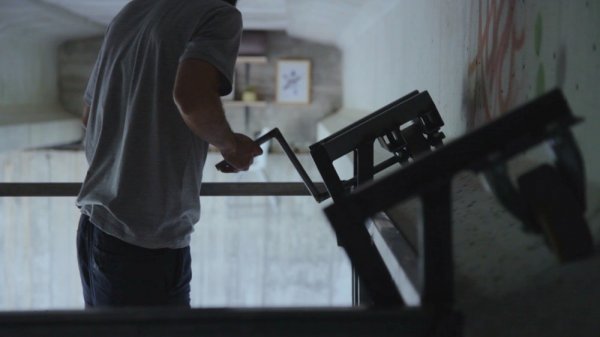
Operating the hand crank to move the shelter into position(Credit: Jose Manuel Pedrajas)
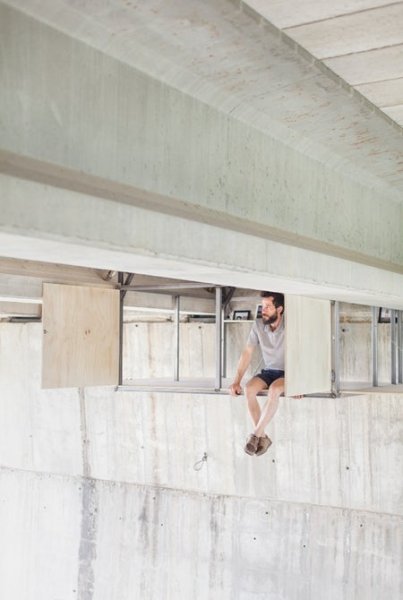
The shelter is reportedly part of a collection of spaces Abellanas has planned(Credit: Jose Manuel Pedrajas)
The Spaces reports that this whimsical shelter is one of the first of a collection of similar projects the designer has planned.
Refugiarse de la ciudad en la propia ciudad. from JoseMP on Vimeo.
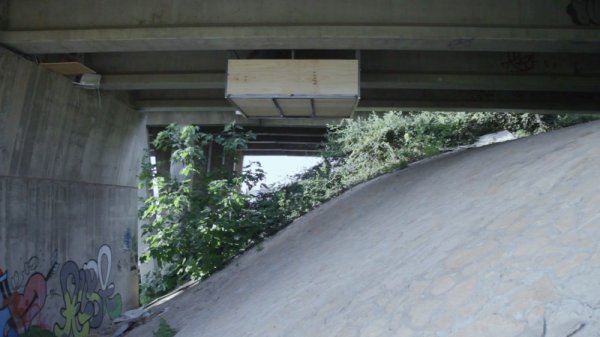
A visitor walks up the banked area and enters the plywood-lined metal shelter, then uses an available hand crank to move it along the bridge’s underside to where a bench, seat, and some shelving are waiting(Credit: Jose Manuel Pedrajas)
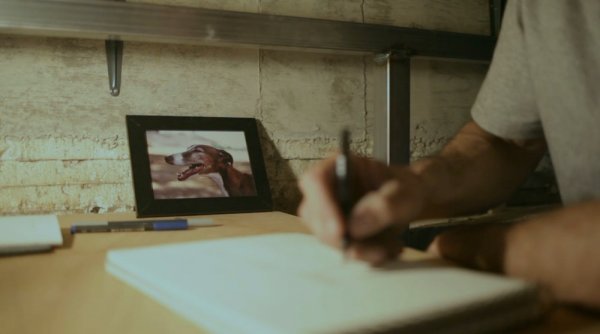
A bench, seat, and some shelving are installed under the bridge(Credit: Jose Manuel Pedrajas)
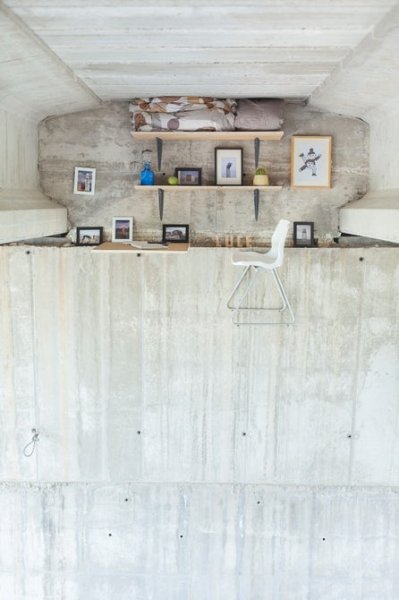
The shelter is a clever example of parasitic architecture(Credit: Jose Manuel Pedrajas)
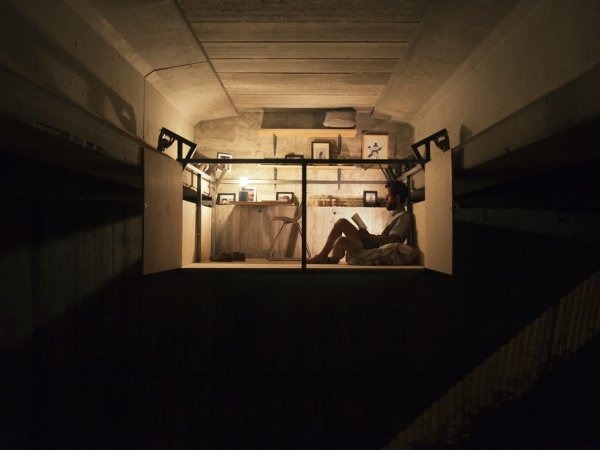
Though there are no amenities as such, it’s possible to make up a bed on the floor with the available bedding and spend the night(Credit: Jose Manuel Pedrajas)
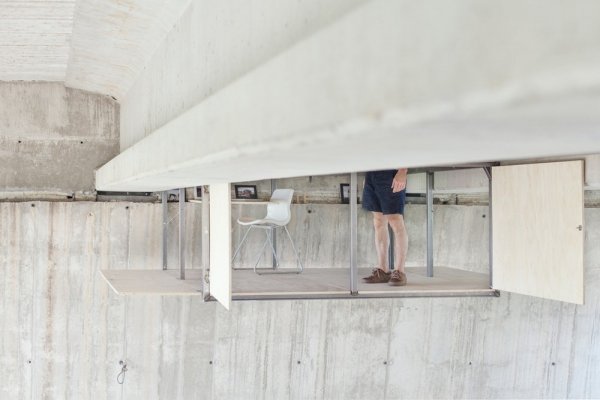
Abellanas conceived the project in an attempt to recapture some of the magic children experience when hiding under a table cloth, or some other secret den(Credit: Jose Manuel Pedrajas)
h/t New Atlas
Leave Comment: